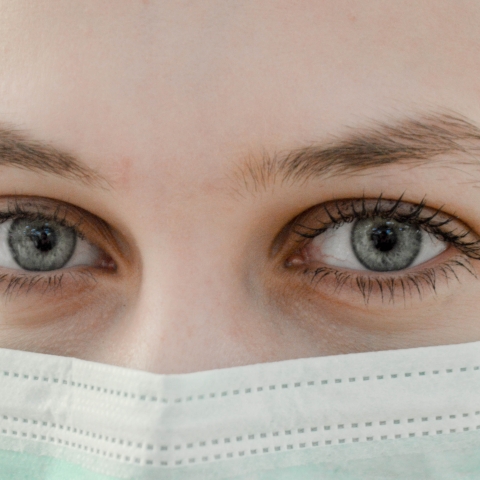9 Tips for Staying Healthy While Traveling, Amid Coronavirus Outbreak

Coronavirus is all over the news: Airlines are reducing flights to China or grounding flights coming from Wuhan (where the virus originated); Asia trade shows are being postponed; and on Jan. 30, the World Health Organization officially declared the virus outbreak a global health emergency.
It’s nearly impossible for event professionals to avoid travel during this time, making it important to take extra precautions to stay well as world health experts work to contain the virus. Here’s what you need to know.
How Coronavirus Is Transmitted
For the most part, the virus was transmitted directly from animals to humans, but there have also been reports of person-to-person transmission in China, says Robert Citronberg, M.D., director of infectious diseases at Advocate Lutheran General Hospital in Niles, Illinois. According to the Centers for Disease Control and Prevention, the disease has not yet spread through human-to-human contact in the United States.
Symptoms of Coronavirus to Watch Out For
While the above news is a relief, it’s still important to stay vigilant for potential symptoms even if you haven’t recently traveled to China. Similar to those of the common cold, coronavirus symptoms range from minimal respiratory issues like mild cough and congestion, to severe symptoms including fever, pneumonia and respiratory failure, says Dr. Citronberg.
Another thing to note is that the incubation period (i.e., how long the virus is in your body before you exhibit symptoms) for this strain of coronavirus is up to 14 days, so travelers may not notice they are sick until days after returning from a trip, says Mary Jacobson, M.D., chief medical director at Alpha Medical in Palo Alto, California.
How to Prevent Risk of Coronavirus
The usual methods of infection prevention are highly recommended, says Dr. Citronberg. While these may seem obvious, let this list serve as a reminder to keep you aware of what you’re touching, especially when traveling.
- Wash your hands with soap and water for at least 30 seconds
- Use alcohol hand sanitizer with at least 70 percent ethanol (check the label on your bottle — most sanitizers given out as freebies at events, or from higher-end lotion and body care brands, are less than 70 percent and be less effective than those with higher alcohol content)
- Cover your mouth and nose with your elbow or sleeve (not your hands) when you cough or sneeze
- Avoid close contact with people who are sick
- Avoid touching your nose, mouth and eyes with unwashed hands
- On board an aircraft, keep the air vents above your seat open for ventilation
- Wipe down airplane armrests and tray table with sanitary wipes
- Use tissues to open restroom doors
- Avoid traveling if you are sick
Precautions shouldn’t be limited to air travel. Rideshare services such as Uber and Lyft carry high volumes of passengers entering the country. “Someone taking an Uber from the airport might just cough on the seat belt and leave germs behind for the next rider, since viruses can remain infectious on surfaces for up to 48 hours,” says Dr. Jacobson.
Despite all the photos around the Internet of travelers wearing masks, even people who are immunocompromised do not need to wear masks at this time unless otherwise instructed by their physician, says Dr. Citronberg.
And even amid the WHO announcement, there’s no cause to panic over coronavirus in the U.S. currently. “By following standard best practices for washing your hands regularly after exposure in public places, and disinfecting armrests and surfaces around you when possible (including rideshare cars, taxis, and public transit), you’re on track to stay protected [from coronavirus],” adds Dr. Jacobson.
Have your events or travel plans been impacted by the coronovirus outbreak? Let us know on Twitter.


Add new comment